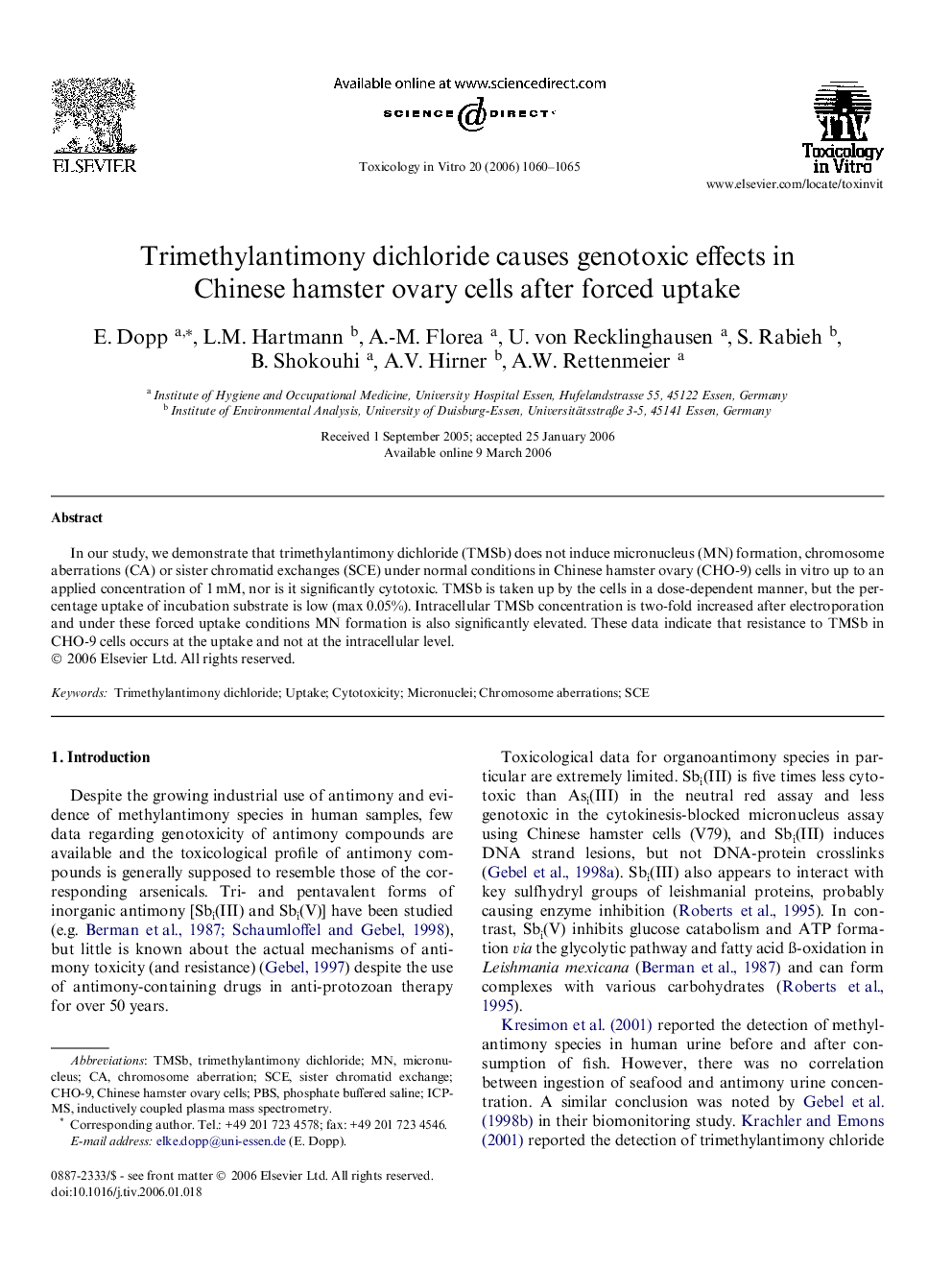| Article ID | Journal | Published Year | Pages | File Type |
|---|---|---|---|---|
| 2603479 | Toxicology in Vitro | 2006 | 6 Pages |
Abstract
In our study, we demonstrate that trimethylantimony dichloride (TMSb) does not induce micronucleus (MN) formation, chromosome aberrations (CA) or sister chromatid exchanges (SCE) under normal conditions in Chinese hamster ovary (CHO-9) cells in vitro up to an applied concentration of 1 mM, nor is it significantly cytotoxic. TMSb is taken up by the cells in a dose-dependent manner, but the percentage uptake of incubation substrate is low (max 0.05%). Intracellular TMSb concentration is two-fold increased after electroporation and under these forced uptake conditions MN formation is also significantly elevated. These data indicate that resistance to TMSb in CHO-9 cells occurs at the uptake and not at the intracellular level.
Keywords
Related Topics
Life Sciences
Environmental Science
Health, Toxicology and Mutagenesis
Authors
E. Dopp, L.M. Hartmann, A.-M. Florea, U. von Recklinghausen, S. Rabieh, B. Shokouhi, A.V. Hirner, A.W. Rettenmeier,
